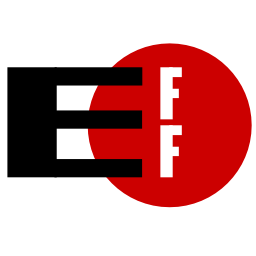
DSA Must Follow a Human-Rights Centered Enforcement Process, With Regulators Engaging International Civil Society Voices
EFF and its partners in the Digital Services Act (DSA) Human Rights Alliance called on European Union (EU) regulators today to engage international civil society voices and forge a human rights centered approach in talks about the implementation and enforcement of the DSA, which sets out new responsibilities and rules for how platforms handle and make decisions about billions of users’ posts.
In a letter addressing the EU Commission, national DSA coordinators, and internet companies, the DSA Human Rights Alliance reminded the parties that the co-regulatory model of the DSA ensures that civil society organizations and digital rights defenders worldwide have a voice in EU state talks, allowing them to represent and advocate for the interests of users, including vulnerable groups who are frequently impacted by badly designed legislation affecting privacy, free expression, and other rights.
“For the DSA to constitute a positive framework aimed at protecting digital rights also beyond the EU, there must be human rights-centered implementation and enforcement of the text over the next few years, accompanied with proactive and meaningful engagement of international civil society voices,” the letter says. “The DSA HR Alliance has a critical role to play in this process.”
The Alliance, formed in 2022, works to ensure that the DSA embraces a human rights-centered approach to platform governance and that EU lawmakers consider the global impacts of European legislation. The DSA, which came into force last year, incorporated many Alliance recommendations concerning governance and platform accountability. But the DSA still features problematic aspects that can have negative consequences for vulnerable and historically oppressed groups. It gives a lot of power to government agencies and other parties with partisan interests to flag and remove potentially illegal content. It’s still not clear about how very large online platforms will mitigate risks in practice, while the role of civil society groups, researchers, and other stakeholders in the due diligence process has never been formalized.
So, now is an important time for regulators to reengage with Alliance members, as EU countries set up authorities to enforce DSA rules and monitor the internet ecosystem for compliance with the Act. How and why internet companies remove users’ posts, combat hate speech and disinformation, and allow users more control over their internet experience are central aspects of the DSA. A wrong turn in shaping enforcement policies could invite shadow negotiations benefitting platforms and exclude voices advocating protections for fundamental rights, ultimately deepening the already vast imbalance of power between platforms and users, particularly vulnerable communities.
It’s imperative that regulators and internet companies recognize their responsibility to create strong DSA enforcement without compromising human rights protections, free speech and expression rights, and users’ privacy and security. We are witnessing the spread of platform regulatory bills in regions outside the EU, many of which are inspired by or directly copy the principles of the DSA. And, as part of its work, the Alliance has begun assessing the undeniable impact that the DSA has throughout the Global Majority.
“The DSA HR Alliance calls on EU regulators to establish transparent international regulatory dialogues, and for an inclusive implementation and enforcement approach that includes meaningful and formalized stakeholder engagement,” the letter says.
“We urge them to value the insights that non-EU organizations can bring to the implementation process of the DSA. This is the case especially for grassroots organizations operating in the Global Majority and civil rights groups fighting for the protections of historically oppressed and vulnerable groups. These groups frequently find themselves on the receiving end of badly designed legislation and can contribute substantially to minimizing the damage throughout the platforms’ value chains.”
For the letter: https://www.eff.org/document/dsa-hr-alliance-letter-july6
For more on the DSA Human Rights Alliance: https://www.eff.org/pages/dsa-human-rights-allianc

Published July 05, 2023 at 09:20PM
Read more on eff.org





More Stories
Expanding Broadband in Portland The Time Is Now
The U.S. Patent Office Should Drop Proposed Rules That Favor Patent Trolls
Nurturing the Internet Freedom Movement